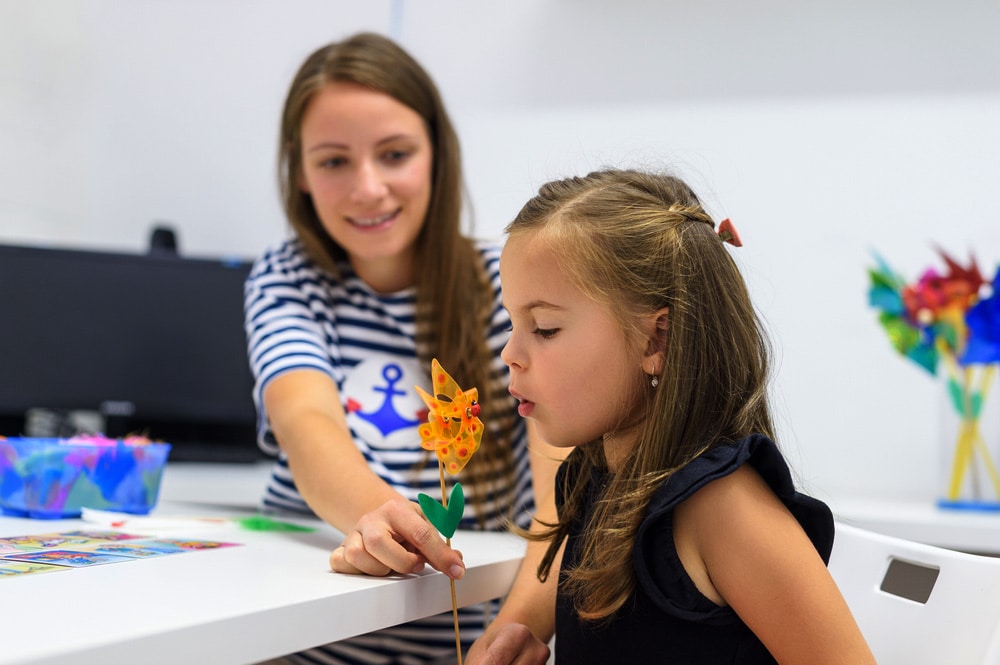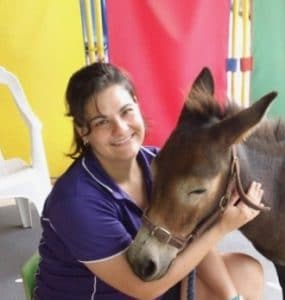Have you ever wondered why some children struggle with speaking or understanding language compared to their peers? Many parents find themselves asking this question, especially when they notice their child facing difficulties with speech or communication. Understanding speech and language disorders in children can be an important step towards seeking the right help and support. In this blog, we’ll explore six common speech and language disorders that can affect children and discuss how recognising these issues early can positively influence their development.

1. Articulation Disorders
Articulation disorders may involve difficulties with producing specific sounds. Children with this disorder might replace one sound with another, leave out sounds, add extra sounds or distort sounds. This can make their speech hard to understand. For example, a child might say “wabbit” instead of “rabbit.” These challenges can impact their ability to communicate clearly with others and may lead to feelings of frustration or social withdrawal.
2. Phonological Disorders
Phonological disorders may relate to the patterns of sounds in speech. Unlike articulation disorders, which may involve difficulty with specific sounds, phonological disorders could involve a consistent pattern of sound errors. For instance, a child might consistently replace the “k” sound with a “t” sound, saying “tat” instead of “cat.” This type of disorder can affect how well a child is understood by peers and adults and may influence their reading and spelling skills as they grow older.
3. Language Delays
Language delays may happen when a child’s language development progresses more slowly than that of their peers. This can involve challenges in understanding or using spoken language. Children with language delays may have a smaller vocabulary, find it difficult to form sentences or struggle to comprehend what is being said to them. Early support can be beneficial in helping these children improve their communication skills and engage more effectively with those around them.
4. Expressive Language Disorders
Expressive language disorders may involve difficulties in communicating thoughts and ideas. Children experiencing this might find it difficult to form sentences, use correct grammar or choose the right words while speaking. They may also speak in short, incomplete sentences, which can make it harder for them to express their needs and engage socially with others.
5. Receptive Language Disorders
Children with receptive language disorders may find it difficult to understand spoken language. They might have trouble following directions, answering questions or grasping what is being communicated to them. This can result in misunderstandings and challenges in both academic and social environments. It may benefit children with this disorder to receive appropriate support to help improve their comprehension and communication skills.
6. Fluency Disorders (Stuttering)
Fluency disorders, such as stuttering, may involve interruptions in the flow of speech. Children who stutter might repeat sounds, syllables or words, prolong sounds or experience blocks in their speech where no sound comes out. These challenges can sometimes make them feel self-conscious or anxious about speaking. With early support, children can learn strategies to manage their stuttering and work towards more fluent speech patterns.
Recognising The Signs
Parents and caregivers are often the first to notice potential speech and language issues in children. Here are some signs that might indicate a need for further attention:
- Difficulty making sounds correctly
- Problems following directions or understanding questions
- Limited vocabulary for their age
- Trouble forming sentences
- Frequent repetition of sounds or words
If you observe any of these signs in your child, it might be helpful to seek advice from a speech therapist.
Book A Consultation With Our Speech Therapist In Darwin Today
Recognising and addressing speech and language disorders in children can improve their communication skills and social interactions. At Stepping Stones Therapy, we understand the concerns parents have when their child encounters speech and language challenges. Our team provides a range of services, including assessments, tailored therapy plans and psychology in Darwin, to support your child’s growth. Whether you are looking for a speech therapist or psychology services in Darwin, we are here to support your child’s journey. Contact us today.
Author

Barbara Kapser
Barbara Kapser is our psychologist at Stepping Stones in Life Therapy Service in Darwin. She's a member with the Australian Psychological Society and the Australian Association for Infant Mental Health.
She specialises in perinatal infant mental health, attachment disorders, developmental trauma and behaviour support.





